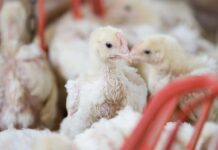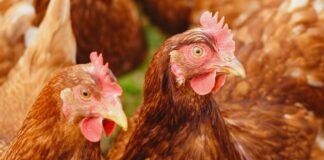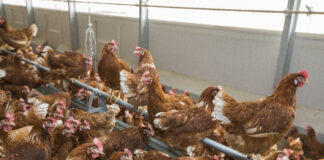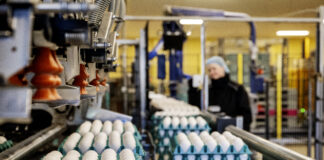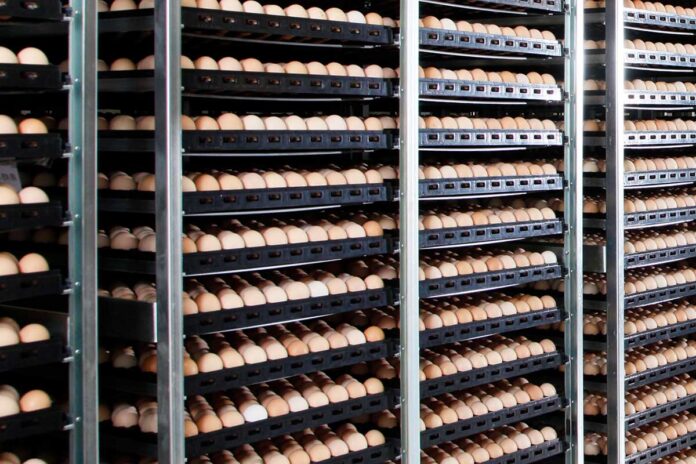
The world is currently experiencing a pandemic caused by a coronavirus, Covid-19. While the virus probably originated in animals, it appears that it only spreads between humans, and only humans seem to be affected. The symptoms vary from a mild form of flu to severe inflammation of the lungs, and in a few cases infection is fatal.
Poultry play no role in spreading Covid-19, and unlike viral diseases found in the poultry industry (such as Avian Influenza, Newcastle disease) poultry are not affected by the virus. So far, so good. The bad news is that Covid-19 is now affecting a massive proportion of the human population, if not directly, then indirectly – and certainly in terms of their work. And hatcheries are no exception.
At Royal Pas Reform we are closely monitoring developments in our global markets so we can provide maximum support to our customers in these challenging times, while bearing in mind that visits in person are not possible. Although circumstances differ from hatchery to hatchery and from country to country, we know from our network that hatcheries are facing labour-related issues and supply chain challenges. While poultry farms and hatcheries continue to operate, more people are staying home as countries try to ‘flatten the curve’ and measures are implemented to reduce transmission of the virus. There is also no denying that market conditions are in flux: restaurants and markets are being closed down, air transport has been disrupted, country borders are closing. All these may have a knock-on effect on how long hatching eggs need to be stored and on the transport times for day-old chicks.
Labour matters
No matter how automated a hatchery is, its operation remains heavily dependent on personnel. And hatchery work is teamwork, involving close proximity, with the risk that someone who is infected will pass the virus on to their colleagues. It is crucial that you instruct your personnel to stay home if they (or someone else in their household) show even the mildest flu symptoms like a runny nose, coughing or low fever. Even if they only have ‘regular’ flu, it’s better to be safe than sorry.
It is also possible for someone to be infected but not show symptoms, and this raises the risk of transmission everywhere including the workplace. It is therefore vital that you apply all measures recommended by local health authorities and the World Health Organization, including the following:
- hand hygiene – wash hands, disinfect them regularly and wear disposable gloves
- avoid touching eyes, nose and mouth
- cough or sneeze into a paper tissue or into your elbow, not your hands.
And most important of all: keep 1.5-2 metres distance. Enforce this rule as strictly as possible. Where this is impossible, for example at the chick grading belt, issue your personnel with face masks. One option for creating distancing could be to work with fewer people at once (which will mean longer operating hours or working in shifts). Avoid overcrowding in the canteen; let people take their break in shifts. Needless to say, you should only allow essential staff into the hatchery. Now is not the time to invite external consultants or call in outside handymen to fix utilities that your staff can take care of. You also need to instruct your truck drivers to keep their distance from people on breeder farms and those they deliver chicks to.
Prolonged storage of hatching eggs
Some of the customers we called have mentioned that they are experiencing difficulties in selling hatched chicks: they don’t have enough housing due to reduced output at processing plants; reduced confidence has meant less investment in chicks and feed; and demand for poultry meat is likely to drop as restaurants and fast-food chains remain closed.
In anticipation of this situation continuing, some have reduced the number of eggs set. This means they will need to store hatching eggs for a longer period. Hatcheries with their own breeder flocks or breeder flocks under contract will be particularly affected, as they have a continuous supply of hatching eggs. For this part of the industry, it is even more important than usual to ensure optimal egg storage conditions. Especially where storage time is likely to be longer, it is advisable to reduce the temperature in the egg storage room to 12–14 °C and to turn the eggs 2–4 times/day provided they are stored on setter trolleys. This will be an extra challenge if storage capacity is limited and simply based on regular settings. In this case, renting a refrigerated container could be a temporary solution.
One way to partly reduce these negative effects is to apply a heat treatment during egg storage (often called SPIDES) even in your regular setters, assuming some of them are empty.
If you find eggs are getting too old, it might be better to use them for egg products and accept these losses; and use the fresher eggs for incubation when setting starts up again.
Prolonged transit time of day-old chicks
As selling day-old chicks becomes more difficult, the chicks may have to stay a day longer in the hatchery. Some customers have also mentioned that transport time is being prolonged due to roadblocks and especially at border crossings.
Chicks can go without food and water for up to 3 days, and their residual yolk sac provides enough nutrients. As long as they are kept comfortable, the chicks will stay quiet and not use much energy. The greatest risk is dehydration. Chicks have only limited water reserves. Under optimal conditions chicks will breathe through their nostrils and lose little water, but when the conditions become too warm, they will start panting with their beaks open in an attempt to prevent their body temperature from rising. Keeping the chicks’ environment comfortable is the most effective way to avoid dehydration.
If waiting times are likely to be longer than normal, you could inject newly hatched chicks with 1cc saline solution. Or provide them with water-containing feed. There are special gels and feeds available, but citrus fruit, watermelon, and boiled rice work well too. And don’t forget that, just as important as overheating, chicks mustn’t become chilled during extended storage.
To sum up
It is vital that you ensure all your staff are following all the rules issued by the local health authorities to prevent transmission of the virus. You can minimise the effects of prolonged egg storage by improving storage conditions and carrying out heat treatment. After they have hatched, keep chicks as comfortable as possible, while avoiding overheating, dehydration and chilling. If delivery is delayed, make sure to give the chicks water-containing feed.




